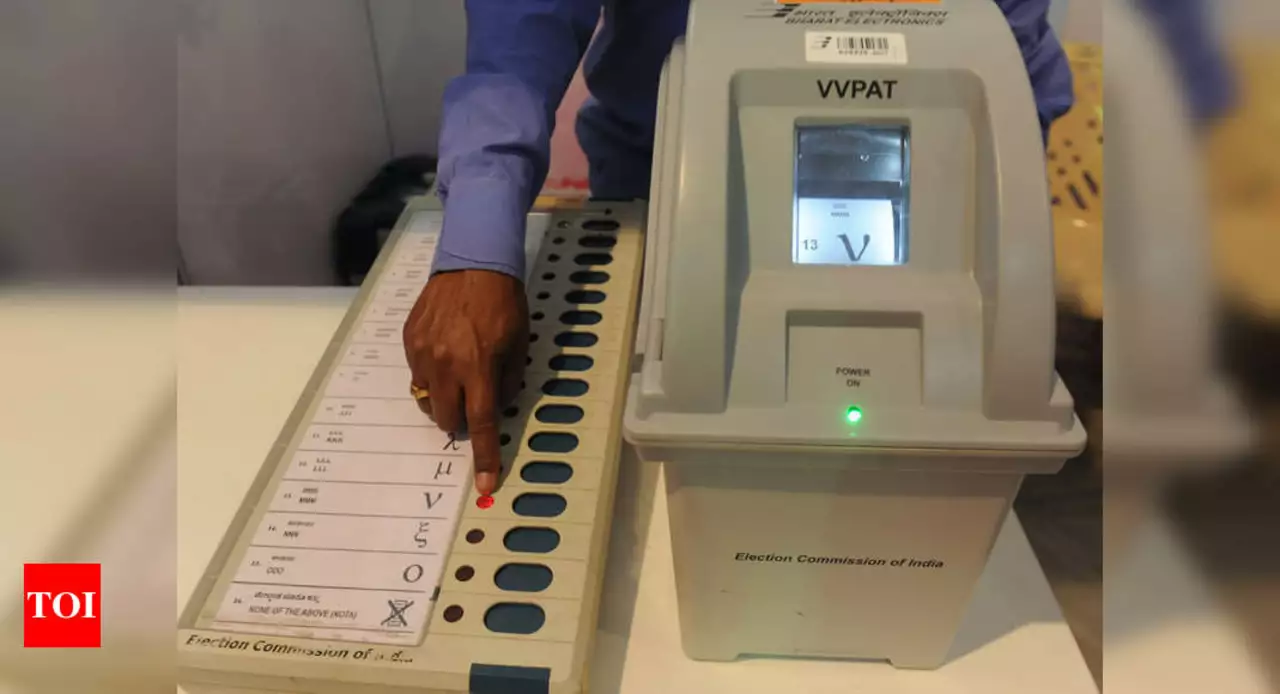Exploring the Implications of the Supreme Court's Decision to Reject Plea on VVPAT Matching with EVMs
India's Supreme Court has recently rejected a plea that sought to match VVPAT (Voter Verified Paper Audit Trail) with EVM (Electronic Voting Machines) for the upcoming General Elections. The decision of the court has sparked an interesting debate amongst the public, with many people questioning the implications of this decision.
VVPAT is a mechanism that enables voters to verify their vote by printing a paper slip of their selection. The paper slip is then stored in a secure compartment, which can be opened and counted during the process of tallying votes. EVM, on the other hand, is an electronic voting machine which records and stores the votes without any paper trail.
The petitioners argued that the combination of VVPAT and EVM could help ensure the accuracy of the voting process by providing a paper trail. However, the court rejected the plea, citing the fact that the Election Commission had already made arrangements for the VVPAT to be used in the upcoming elections.
The decision of the court has raised several questions in the minds of the public. Some of the most common questions are:
- How will the Election Commission ensure the accuracy of the voting process without the VVPAT-EVM combination?
- Will there be enough time to make the necessary arrangements before the General Elections?
- What measures will be taken to ensure that the voting process is not tampered with?
The Election Commission has been quick to respond to these questions, and has assured the public that all necessary measures are being taken to ensure the accuracy and integrity of the voting process. The Commission has also stated that it has made arrangements for the deployment of VVPAT machines in all polling stations, and that these machines will be closely monitored to ensure that they are not tampered with.
The Supreme Court's decision to reject the plea on VVPAT matching with EVMs, while controversial, is a step in the right direction. It sends a message that the Election Commission is taking the necessary steps to ensure the accuracy of the voting process, and that it is taking the concerns of the public seriously.
Ultimately, the Supreme Court's decision to reject the plea on VVPAT matching with EVMs is a positive step towards ensuring the accuracy of the voting process in India. The Election Commission has made the necessary arrangements for the implementation of VVPAT machines in all polling stations, and it is up to the public to ensure that they are not tampered with.
How the Supreme Court's Rejection of a Plea on VVPAT Matching with EVMs Could Impact India's Election System
The recent decision of the Supreme Court of India, dismissing a plea for VVPAT (Voter Verifiable Paper Audit Trail) matching with EVMs (Electronic Voting Machines) has been a major setback for India's electoral system. The VVPAT-EVM matching system was proposed to ensure the accuracy of the electoral process, and the rejection of the plea has raised several questions regarding the future of India's election system.
The Supreme Court's decision is based on the fact that the VVPAT-EVM matching system is logistically impossible to implement, considering the vast number of polling stations across India. The court argued that the system is too complex and would require an enormous amount of resources and manpower to implement. The court also noted that the system would be time-consuming and would delay the announcement of election results.
The rejection of the plea has raised several concerns about the accuracy of the electoral process in India. Supporters of the VVPAT-EVM matching system argue that it would help to prevent electoral fraud and manipulation, and would make the electoral process more secure and reliable. Opponents of the system argue that it is too costly and time-consuming, and would create long delays in the announcement of election results.
The Supreme Court's decision could have far-reaching implications for India's electoral system. It could be argued that the rejection of the plea could lead to an increase in electoral fraud and manipulation, as the system would not be able to detect any potential irregularities. It could also be argued that the lack of a reliable VVPAT-EVM matching system could lead to a decrease in public confidence in the electoral process.
In conclusion, the Supreme Court's rejection of a plea for VVPAT matching with EVMs could have significant implications for India's election system. The system would have provided a reliable and secure method of verifying the accuracy of the electoral process, but its rejection could lead to an increase in electoral fraud and manipulation. Furthermore, it could lead to a decrease in public confidence in the electoral process. It is therefore incumbent upon the government to take measures to ensure the accuracy and reliability of the electoral process.
